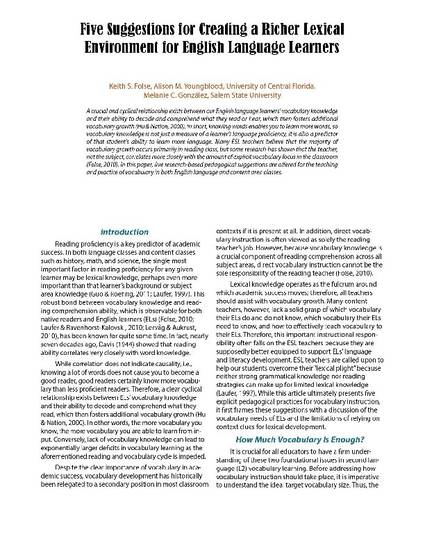
Article
Five Suggestions For Creating A Rich Lexical Environment In A Language Classroom
Sunshine State TESOL Journal
(2011)
Abstract
A crucial and cyclical relationship exists between our English language learners' vocabulary knowledge and their ability to decode and comprehend what they read or hear, which then fosters additional vocabulary growth (Hu & Nation, 2000). In short, knowing words enables you to learn more words, so vocabulary knowledge is not just a measure of a learner's language proficiency, it is also a predictor of that student's ability to learn more language. Many ESL teachers believe that the majority of vocabulary growth occurs primarily in reading class, but some research has shown that the teacher, not the subject, correlates more closely with the amount of explicit vocabulary focus in the classroom (Folse, 2010). In this paper, five research-based pedagogical suggestions are offered for the teaching and practice of vocabulary in both English language and content area classes.
Disciplines
Publication Date
Spring 2011
Citation Information
Melanie C. González, Keith S. Folse and Alison M. Youngblood. "Five Suggestions For Creating A Rich Lexical Environment In A Language Classroom" Sunshine State TESOL Journal Vol. 11 Iss. 1 (2011) p. 7 - 13 Available at: http://works.bepress.com/melanie-gonzalez/8/
